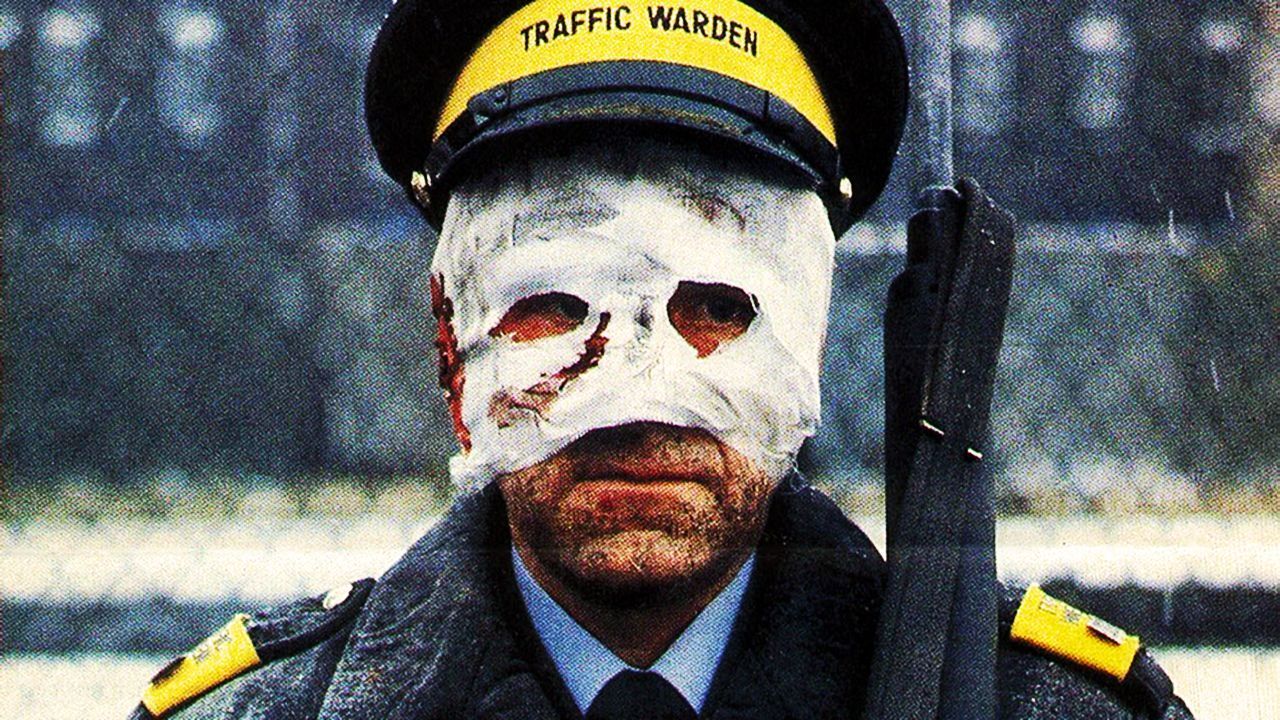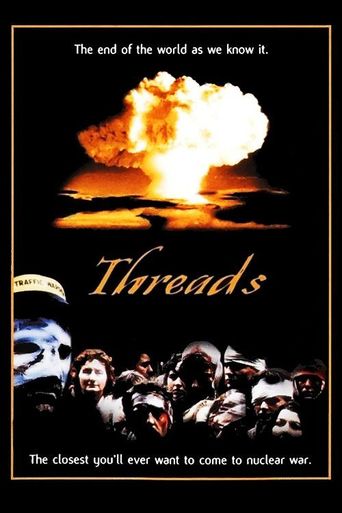

While I appreciate the ways in which the filmmakers of Threads tried to implement extreme realism in their depiction of nuclear warfare, I fail to see what the audience is supposed to glean from this film, other than being tortured for two hours. There's very little plot to speak of and no character development, making Threads play more like an R-rated after-school cautionary. Nuclear war is bad! Let's not nuke each other!Do we need gruesome depictions of dead babies to hammer this point home? Can't our imaginations suffice?
... View MoreOnce again, I struggled to understand the British English. At least this time, I didn't really need to. Not a word needed to be spoken to convey the very real horror we might all be subjected to. Now, closer to that armageddon than ever before in our history. I just hope I die in the initial blast. The after is actually worse than the blast itself. God help us all.
... View MoreEverybody needs to see this once in their lives (politicians especially).It demonstrates vividly, brutally, and with no punches pulled- that no one gains from nuclear war, and that the consequences are devastating for decades, if not centuries afterwards. It is also the first film ever, I believe, to show the impact of a "nuclear winter".The film is very unlike the American offering of the time (The Day After), as it adopts a semi-documentary approach, which gives it realism and authenticity.I was genuinely unnerved by this film, and I am sure it played its part in stalling nuclear proliferation internationally. Nobody could watch this and seriously wish to continue thinking that there is anything to be gained by a nuclear strike.Brilliant. 10/10 in every department. The use of "neo-real" casting (i.e. unknown actors) made this all the more chilling.
... View MoreMick Jackson's BBC docu-drama opens with one implicit warning:"In an urban society, everything connects. Each person's needs are fed by the skills of many others.Our lives are woven together in a fabric, but the connections that make society strong also make it vulnerable."His warning concludes with a fragile strand of spider silk and fades into a fully woven, menacing orb of spider web.I saw this post-nuclear apocalypse film on the force of Guardian's recommendation for scariest horror films. But I don't consider it the scariest horror I've seen for two reasons: Threads is not really horror by formalistic standards as it can't be qualified by the usual sub-genres (slasher, supernatural, psychological to name a few). Second, it didn't induce a sense of mounting dread (so keenly attempted by most horror movies) in all 112 minutes of running time.Yet it gave me a nightmare the same night I was done watching.So what's the big deal? There are tonnes of shows (about wars, nuclear disasters, end-of-the-world) trying to frighten us with gruesome make-up and special effects anyway: Pearl Harbor, The Hills Have Eyes, Children of Men Well it is here that the film's choice of fictional news footage and anti-aesthetic photography by Andrew Dunn and Paul Morris deserve mention. Amplified by the context of nuclear radiation in a densely populated urban centre, human disfigurement occurring in the thick of those post-disaster scenes were absolutely disturbing to witness.I haven't seen imageries this persistent and lasting since defective humans and severed limbs in movies by Jodorowsky. The video's grainy resolution — likely the result of analogue format on Super VHS back in the 1980s — adds to the tone of cinéma vérité very well. Overall effect is creepy like a scratchy washed-out video in Hideo Nakata's Ringu, combined with the haunting cruelty in war photos captured by James Natchwey.Screenwriter Barry Hines hypothesizes the fate of people living in Sheffield when the Soviet Union detonates a warhead above the North Sea. I will not delve into details with a blow-by-blow account of the fictional brinkmanship in Threads, but essentially, a failed US- led coup in Iran escalates into armed confrontation with the Soviet Union. This crisis culminates in nuclear attacks on NATO bases throughout the region, with the city of Sheffield being one of several targets.Three narrative viewpoints drive the film: documentary aspects are narrated by an omniscient man whom earlier, had warned us of the vulnerability in a system held by connections that interlock too closely. He explains in chronological sequence: how early days of the crisis lead to the melt down of society's economic, social, medical and environmental conditions. And finally, the ultimate collapse of humanity itself. Dramatic arcs are painted through the story of young lovers, Ruth Beckett and Jimmy Kemps. An unplanned pregnancy introduces their respective families (the Becketts and the Kemps) in the mix, effectively setting up these ordinary characters as victims who will suffer for generations to come, acutely and chronically, the full blown effects of this event when nuclear radiation rises and peaks after 3000 megatons of TNT. Another viewpoint follows a small group of council members in Sheffield's Emergency Operations Team.All three units engineer in full force; a scientifically eloquent, nightmarish and realistic narrative of total devastation caused by a nuclear holocaust.Threads may be a faux-documentary but still, it makes for a terrifying watch. Miles ahead of fly-by-night Hollywood disaster flicks, this is a deeply intense social realist drama anchored in credible visual tone and political language. Don't let the fact that it was made back in 1984 fool you into thinking otherwise. Not for the squirmish or faint-hearted.cinemainterruptus.wordpress.com
... View More